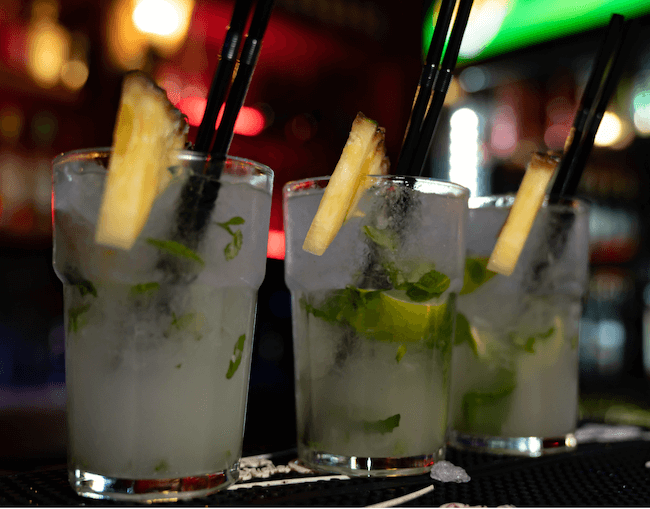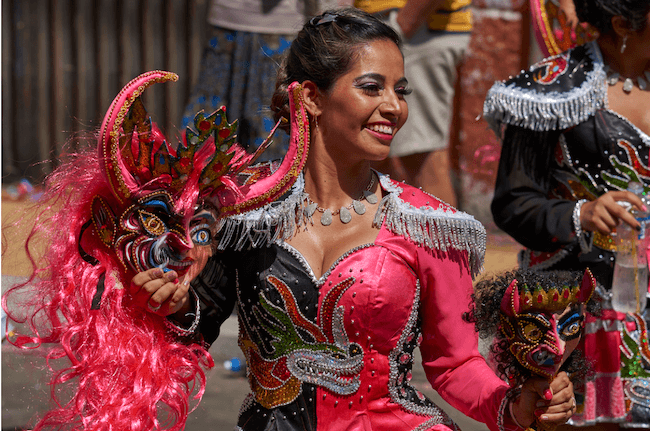Chilean slang can confuse even the most advanced Spanish speaker. Chilean people’s idiosyncratic pronunciations – such as dropping ‘s’ sounds in phrases like más o menos so it becomes “mah-o-meno”, meaning “more or less” – can throw off those who are used to European Spanish. Furthermore, as with many other Latin American dialects, Chileans use slightly different grammar rules. For instance, Chileans use ustedes to mean “you plural” or “they”, as opposed to vosotros, which is the Castilian form. Equally, in Chilean Spanish, the second person singular ends with –ai rather than –as. For example, ¿cómo estás? becomes ¿cómo estai? However, visitors to Chile needn’t worry – with a few pointers, you can begin to navigate Chilean slang. Below, we run through 15 words and phrases you’re likely to hear on you trip.
Common Chilean slang words and phrases
1. Huevón (pronounced ‘wéon’)
Huevón is the one piece of Chilean slang you’re most likely to come across. Meaning “ok”, “good” or “hi” It can be intended as either friendly or rude, depending on whether you use it with strangers or close friends.
2. ¿Cachai?
Cachar comes from the English verb “to catch”, and similarly to the English turn of phrase “did you catch that?” it can also mean “to understand”. Therefore, cachai translates roughly as “you know?” or “get it?”.
3. Un copete

As opposed to saying una bebida or una copa, Chileans use un copete for an alcoholic drink.
4. Carrete
Instead of la fiesta, Chileans say la carrete for “the party”. They might also say mambo as well.
5. Buena onda
Buena onda means “good vibes”, so perhaps la carrete tiene buena onda. However, mal onda means “bad vibes.”
6. Curado
If you are at a carrete drinking copetes, then you might end up curado, or drunk. For example, ¡estoy curada! is “I’m drunk!”
7. Dar jugo
If you’re muy curado you might dar jugo – which means talking nonsense. In this case, you need to conjugate the verb dar to use it in a sentence: so ¡doy jugo¡ is “I’m talking nonsense!”
8. Caña
…and, if you have one too many copetes at the carrete, you might wake up with a caña – which is Chilean slang for “hangover”.
9. Pasarlo chancho
Pasarlo chancho means “to have fun” or enjoy something. For example, la pasamos chancho en el carrete de Maria, means “we had fun at Maria’s party.
10. Bacán
Bacán is a common expression for saying something is cool, brilliant or awesome. For instance, you could say esa carrete estuvo bacán, which means “that party was cool.”
11. Fome
However, if la carrete isn’t that much fun, you might say it’s fome, which means boring. For instance, you might say to your friend, ¡qué fome este carrete! Meaning “how boring is this party!”
12. Cuico/cuica
Cuico, the masculine form, or cuica, means upper class, snobby or rich person.
13. Rico/rica
In Chile, rico or rica doesn’t just mean rich, it also means “delicious”. For example, la comida es muy rica, means “the food is delicious.” However, it’s also used to describe an attractive person, literally meaning “delicious person.”

14. Pololo/polola
In Chilean slang, tengo novio/novia is not normally used for “I have a boyfriend/girlfriend.” Instead, they say tengo pololo/polola. Equally, estoy pololeando means “I am dating.”
15. Luca
Luca is a word used to talk about money generally (like “bucks”). However, it can also specifically mean 1000 pesos.
No comments yet
There are no comments on this post yet.






Leave a comment